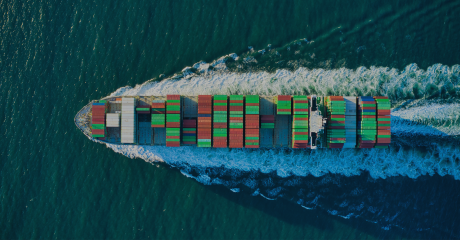Earlier this year, the Department of Homeland Security (DHS) announced a new initiative targeting illegal trade practices in the textile industry. With over 500,000 U.S. jobs on the line, these enforcement actions aim to eliminate fraudulent imports, protect American manufacturers, and enhance supply chain security.
Enforcement of these new actions will be split between two of the department’s agencies, U.S. Customs and Border Protection (CBP) and Homeland Security Investigations (HSI). CBP and HSI will work together to protect the integrity of U.S. textile markets.
What are the enforcement actions?
DHS has already started to implement their new textile enforcement actions, which include the following strategies:
- Cracking down on small package shipments to prohibit illicit goods from U.S. markets by improving screening of packages claiming the Section 321 de minimis exemption for textile, UFLPA, and other violations, including expanded targeting, laboratory and isotopic testing, and focused enforcement operations.
- Conducting joint CBP-HSI trade special operations to ensure cargo compliance. This includes physical inspections; country-of-origin, isotopic, and composition testing; and in-depth reviews of documentation. CBP will issue civil penalties for violations of U.S. laws and coordinate with HSI to develop and conduct criminal investigations when warranted.
- Better assessing risk by expanding customs audits and increasing foreign verifications. DHS personnel will conduct comprehensive audits and textile production verification team visits to high-risk foreign facilities to ensure that textiles qualify under the U.S.-Mexico-Canada Agreement (USMCA) or the Central America-Dominican Republic Free Trade Agreement (CAFTA-DR).
- Building stakeholder awareness by engaging in an education campaign to ensure that importers and suppliers in the CAFTA-DR and USMCA region understand compliance requirements and are aware of CBP’s enforcement efforts.
- Leveraging U.S. and Central American industry partnerships to improve facilitation for legitimate trade.
- Expanding the UFLPA Entity List to identify malign suppliers for the trade community through review of additional entities in the high-priority textile sector for inclusion in the UFLPA Entity List.
>> Read our Forced Labor Regulations Cheat Sheet for an overview on global laws <<
As a follow up to these new provisions, in November 2024 DHS added new textile companies to the UFLPA entity list. Their announcement declared that goods produced by Esquel Group, Guangdong Esquel Textile Co., Ltd., and Turpan Esquel Textile Co., Ltd. will be prohibited from entering the United States. The department also reclassified two other entities on the list.
Complying with the DHS Textile Enforcement Actions with Sayari
Navigating the complex web of trade regulations and ensuring compliance can be challenging, but tools like Sayari Graph and Sayari Map help trade teams keep up with the influx of new provisions from DHS.
>> Learn how CBP relies on Sayari for UFLPA enforcement <<
Sayari’s platforms utilize open source records and graph technology to map out connections and establish links between illicit actors, their infrastructure, and related business structures and transactions. Importers can leverage Sayari to move beyond list-based forced labor screening to get ahead of compliance mandates:
- Proactively identify forced labor risk with 38+ risk indicators that flag industry-standard screening lists, as well as emerging forced labor risk typologies targeted by international regulators
- Screen for 2.5+ million companies geolocated in Xinjiang and their trading partners around the world
- Isolate sub-tier suppliers of interest with AI-enabled product blueprint technology to filter out the noise so you can better understand the suppliers that matter
- Access analyst-curated risk insights from high-value sources such as the Sheffield-Hallam University reports on forced labor
- Empower individual supplier review with entity profiles that detail corporate structures, trading partners, and risk indicators, all sourced to our global dataset
For examples and best practices for investigating suppliers to ensure compliance with global regulations, watch our webinar: Who Supplies Your Suppliers? Understanding Your Supply Chain Tiers in an Evolving Compliance Landscape.



